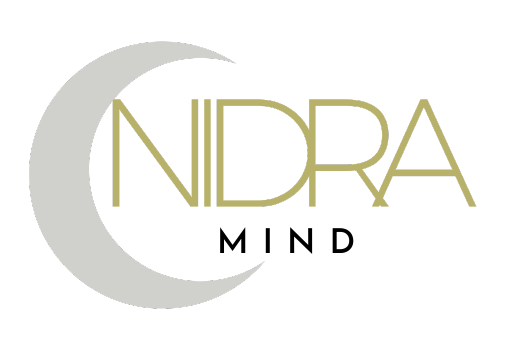Vocal tics are involuntary, sudden, and repetitive sounds or utterances produced by the vocal cords. These tics can range from simple throat-clearing to more complex vocalizations and are often associated with Tourette syndrome. While vocal tics can be challenging to manage, understanding their causes and exploring potential solutions can significantly improve the quality of life for individuals affected by them.
Causes of Vocal Tics:
- Stress and Anxiety: Stress and anxiety can exacerbate tics in individuals who are predisposed to them. Managing stress and finding effective coping mechanisms can be crucial in reducing the frequency and intensity of vocal tics.
- Neurological Factors: Abnormalities in certain brain regions, particularly those involved in motor control and inhibition, may contribute to the development of vocal tics.
- Tourette Syndrome: Tourette syndrome is a neurological disorder characterized by repetitive, involuntary movements and vocalizations known as tics. While the exact cause of Tourette syndrome is not fully understood, it is believed to involve a combination of genetic and environmental factors.
- Genetics: There is evidence to suggest a genetic predisposition to developing tics. Individuals with a family history of tics or Tourette syndrome may be more likely to experience vocal tics themselves.
Holistic solutions for Managing Vocal Tics:
Vocal tics can significantly impact one's daily life. While conventional treatments like medication and therapy exist, a holistic approach addresses the issue from a broader perspective, considering the interconnectedness of the mind, body, and spirit. In this article, we will explore holistic solutions aimed at resolving vocal tics naturally.
- Stress Management: Since stress and anxiety can exacerbate vocal tics, stress management techniques such as deep breathing, meditation, and progressive muscle relaxation can be helpful. Engaging in regular physical exercise is another effective way to reduce stress levels. Find a progressive muscle relaxation script here.
- Adequate Sleep: Poor sleep quality and insufficient rest can exacerbate tic symptoms. Establishing a consistent sleep routine and creating a comfortable sleep environment can contribute to better overall health and potentially reduce the severity of vocal tics.
- Mindfulness Meditation and Yoga Nidra: Mindfulness meditation involves focusing on the present moment without judgment. Whereas Yoga Nidra embeds an intention in the subconscious mind to replace and undesired behaviour with a desired one. Regular practice can enhance self-awareness and help individuals manage stress, a common trigger for vocal tics. Mindfulness techniques and Yoga Nidra can be particularly effective in breaking the cycle of tic-related anxiety. Here is a specific Yoga Nidra for Vocal Tics.
- Breathing Exercises: Deep breathing exercises can be a powerful tool for managing vocal tics. Practice diaphragmatic breathing, inhaling slowly through the nose, allowing the abdomen to expand, and exhaling through the mouth. Conscious breathing helps reduce tension and promotes a calm state of mind. Read how to practice diaphragmatic breathing here.
- Yoga and Tai Chi: Engaging in gentle, mindful movements such as yoga or tai chi can promote relaxation and improve overall body awareness. These practices emphasize breath control, balance, and flexibility, contributing to a sense of physical and mental well-being.
- Nutritional Support: Certain nutritional factors may influence tic severity. Consider consulting with a nutritionist to explore potential dietary triggers or deficiencies. Maintaining a balanced diet with adequate vitamins and minerals may contribute to overall well-being. Understand more about the role of nutrition here.
- Herbal Remedies: Herbal supplements with calming properties, such as chamomile or valerian root, may help manage stress and anxiety. However, it's crucial to consult with a healthcare professional before incorporating any herbal remedies into your routine, especially if you are taking other medications.
- Art and Music Therapy: Engaging in creative activities, such as art or music therapy, can serve as an outlet for emotional expression. These forms of self-expression may help individuals manage stress and redirect the impulses associated with vocal tics.
- Behavioral Therapy: Cognitive Behavioral Therapy (CBT) and Habit Reversal Training (HRT) have shown effectiveness in managing tics. These therapies help individuals become more aware of their tics and provide strategies to redirect or suppress them.
- Speech Therapy: Speech therapy can be beneficial in teaching individuals techniques to control and modify their vocalizations. Therapists can work with patients to develop alternative ways to express the urge to vocalize without engaging in the tic.
- Holistic Therapies: Explore alternative therapies like biofeedback, homeopathy, or energy healing. These approaches aim to enhance the body's natural ability to heal and rebalance, potentially offering relief for individuals experiencing vocal tics.
- Acupuncture and Acupressure: Traditional Chinese medicine practices like acupuncture and acupressure focus on restoring the body's balance. By targeting specific energy pathways, these techniques may help alleviate tension and reduce the frequency of vocal tics.
- Environmental Modifications: Creating a supportive and understanding environment is crucial for individuals with vocal tics. Educating family members, friends, and colleagues about the condition can reduce social stress and enhance empathy.
Holistic approaches to managing vocal tics emphasize the importance of addressing the mind, body, and spirit in unison. While these holistic solutions may not replace traditional medical interventions, they can complement existing treatments and contribute to an individual's overall well-being. It's essential to consult with healthcare professionals and holistic practitioners to create a personalised and comprehensive approach to managing vocal tics. By incorporating these holistic practices, individuals may find relief and empowerment on their journey toward improved vocal health.

